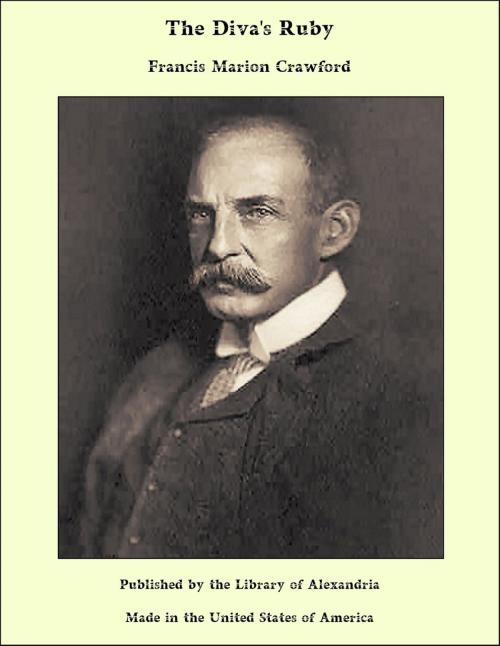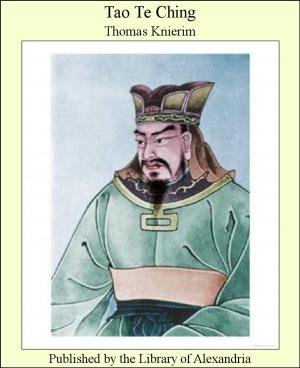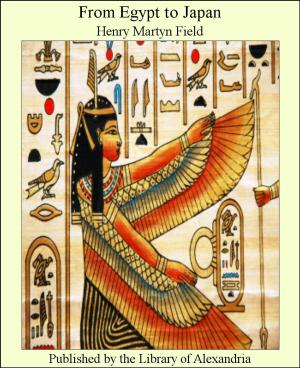| Author: | Francis Marion Crawford | ISBN: | 9781465553300 |
| Publisher: | Library of Alexandria | Publication: | March 8, 2015 |
| Imprint: | Language: | English |
| Author: | Francis Marion Crawford |
| ISBN: | 9781465553300 |
| Publisher: | Library of Alexandria |
| Publication: | March 8, 2015 |
| Imprint: | |
| Language: | English |
There is a ruby mine hidden in the heart of the mountains near a remote little city of Central Asia, unknown to European travellers; and the secret of the treasure belongs to the two chief families of the place, and has been carefully guarded for many generations, handed down through the men from father to son; and often the children of these two families have married, yet none of the women ever learned the way to the mine from their fathers, or their brothers, or their husbands, none excepting one only, and her name was Baraka, which may perhaps mean 'Blessed'; but no blessing came to her when she was born. She was much whiter and much more beautiful than the other girls of the little Tartar city; her face was oval like an ostrich egg, her skin was as the cream that rises on sheep's milk at evening, and her eyes were like the Pools of Peace in the Valley of Dark Moons; her waist also was a slender pillar of ivory, and round her ankle she could make her thumb meet her second finger; as for her feet, they were small and quick and silent as young mice. But she was not blessed. When she was in her seventeenth year a traveller came to the little city, who was not like her own people; he was goodly to see, and her eyes were troubled by the sight of him, as the Pools of Peace are darkened when the clouds lie on the mountain-tops and sleep all day; for the stranger was tall and very fair, and his beard was like spun gold, and he feared neither man nor evil spirit, going about alone by day and night. Furthermore, he was a great physician, and possessed a small book, about the size of a man's hand, in which was contained all the knowledge of the world. By means of this book, and three small buttons that tasted of mingled salt and sugar, he cured Baraka's father of a mighty pain in the midriff which had tormented him a whole week. He brought with him also a written letter from a holy man to the chiefs of the town; therefore they did not kill him, though he had a good Mauser revolver with ammunition, worth much money, and other things useful to believers. Satan entered the heart of Baraka, and she loved the traveller who dwelt in her father's house, for she was not blessed; and she stood before him in the way when he went out, and when he returned she was sitting at the door watching, and she took care to show her cream-white arm, and her slender ankle, and even her beautiful face when neither her father nor her mother was near. But he saw little and cared less, and was as grave as her father and the other greybeards of the town. When she perceived that he was not moved by the sight of her, she watched him more closely; for she said in her girl's heart that the eyes that are blind to a beautiful woman see one of three things: gold, or power, or heaven; but her sight was fixed only on him. Then her throat was dry, her heart fluttered in her maiden breast like a frightened bird, and sometimes, when she would have tried to speak, she felt as if her tongue were broken and useless; the fire ran lightly along her delicate body, her eyes saw nothing clearly, and a strange rushing sound filled her ears; and then, all at once, a fine dew wet her forehead and cooled it, and she trembled all over and was as pale as death—like Sappho, when a certain god-like man was near. Yet the stranger saw nothing, and his look was bright and cold as a winter's morning in the mountains
There is a ruby mine hidden in the heart of the mountains near a remote little city of Central Asia, unknown to European travellers; and the secret of the treasure belongs to the two chief families of the place, and has been carefully guarded for many generations, handed down through the men from father to son; and often the children of these two families have married, yet none of the women ever learned the way to the mine from their fathers, or their brothers, or their husbands, none excepting one only, and her name was Baraka, which may perhaps mean 'Blessed'; but no blessing came to her when she was born. She was much whiter and much more beautiful than the other girls of the little Tartar city; her face was oval like an ostrich egg, her skin was as the cream that rises on sheep's milk at evening, and her eyes were like the Pools of Peace in the Valley of Dark Moons; her waist also was a slender pillar of ivory, and round her ankle she could make her thumb meet her second finger; as for her feet, they were small and quick and silent as young mice. But she was not blessed. When she was in her seventeenth year a traveller came to the little city, who was not like her own people; he was goodly to see, and her eyes were troubled by the sight of him, as the Pools of Peace are darkened when the clouds lie on the mountain-tops and sleep all day; for the stranger was tall and very fair, and his beard was like spun gold, and he feared neither man nor evil spirit, going about alone by day and night. Furthermore, he was a great physician, and possessed a small book, about the size of a man's hand, in which was contained all the knowledge of the world. By means of this book, and three small buttons that tasted of mingled salt and sugar, he cured Baraka's father of a mighty pain in the midriff which had tormented him a whole week. He brought with him also a written letter from a holy man to the chiefs of the town; therefore they did not kill him, though he had a good Mauser revolver with ammunition, worth much money, and other things useful to believers. Satan entered the heart of Baraka, and she loved the traveller who dwelt in her father's house, for she was not blessed; and she stood before him in the way when he went out, and when he returned she was sitting at the door watching, and she took care to show her cream-white arm, and her slender ankle, and even her beautiful face when neither her father nor her mother was near. But he saw little and cared less, and was as grave as her father and the other greybeards of the town. When she perceived that he was not moved by the sight of her, she watched him more closely; for she said in her girl's heart that the eyes that are blind to a beautiful woman see one of three things: gold, or power, or heaven; but her sight was fixed only on him. Then her throat was dry, her heart fluttered in her maiden breast like a frightened bird, and sometimes, when she would have tried to speak, she felt as if her tongue were broken and useless; the fire ran lightly along her delicate body, her eyes saw nothing clearly, and a strange rushing sound filled her ears; and then, all at once, a fine dew wet her forehead and cooled it, and she trembled all over and was as pale as death—like Sappho, when a certain god-like man was near. Yet the stranger saw nothing, and his look was bright and cold as a winter's morning in the mountains















